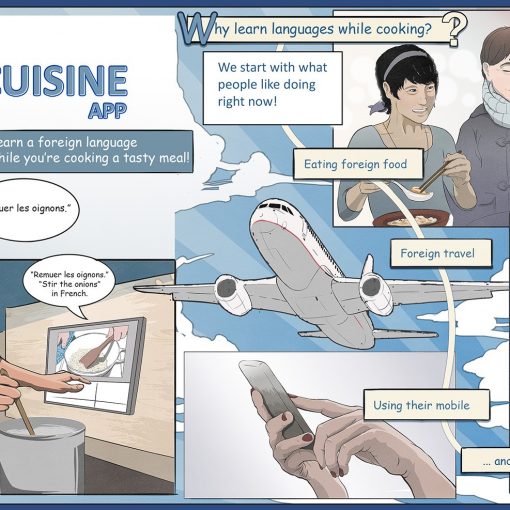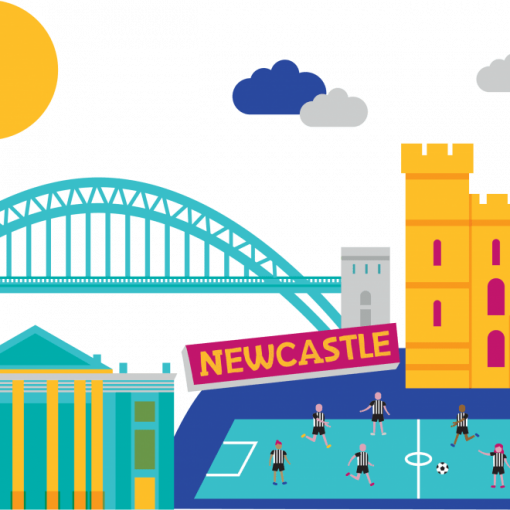On Friday 16th October from 10:00-11:30 BST, Professor Paul Seedhouse and Dr Alison Whelan will be delivering a Linguacuisine live Virtual Language Exchange workshop in ilab:learn at Newcastle University, connecting with Dr Jaume Batlle at the University of Barcelona, Spain. Alison will be cooking a Catalan meal and learning Catalan, assisted by Jaume. Jaume will be making a Vietnamese recipe and learning Vietnamese in Barcelona, assisted by PhD student Trang Nguyen in Newcastle. Then we will evaluate what has been learnt on the levels of language and culture, and consider how Virtual Language Exchange works.
Virtual Language Exchange involves people in different locations working together on a language learning/cultural task and is therefore very relevant to online language learning in the current lockdown. This workshop gives a practical insight into how it can work, using the Linguacuisine app for learning languages/cultures/cuisines while cooking. For information on the Linguacuisine app check https://linguacuisine.com/ The two recipes featured can be found by going to ‘try it online now’ – recipe language Catalan, recipe Suquet de peix, and recipe language Vietnamese, recipe Vietnamese egg coffee. Why not try cooking them yourself while you’re watching?
We hope to ‘see’ you online for the event, and you can participate using the text/comment function.
https://newcastleuniversity.zoom.us/j/82114160242
Meeting ID: 821 1416 0242 Passcode: 682120
https://www.facebook.com/Linguacuisine/videos/
Language Learning while Cooking: Live Virtual Language Exchange Workshop
The workshop will take płace in the Digital Kitchen in Newcastle University (which was purpose built for such events), as well as in Barcelona University at the same time. Both centres will be connected live online by video so they can interact with each other. Both centres have previously produced language learning recipes on the Linguacuisine app in different languages. Each centrę will cook a recipe which was previously produced an uploaded to the app by the other centrę, which will also involve the participants in learning new words in the foreign language. Thus, each centrę can see how its own language learning recipe is being cooked by the other centre, and can offer help and assess language learning. Conversely, each centre can get expert help with its own learning of both cooking and language items from the centre which produced the recipe. In this way, the principles of information gap and information transfer are built into the virtual exchange tasks carried out by the 2 groups and these provide an authentic reason for the groups to interact with each other to help each other with the task. Each group will eat the food produced and offer feedback on the recipe and learning experience to the authors. Each group will also assess how many new words they have learnt, with the help of the expert group. We will then discuss how the principles of information gap and transfer have influenced the interaction and evaluate the virtual exchange experience for this specific task. The aim of the workshop is to introduce participants to the possibilities of using ‘language learning while cooking’ as a virtual exchange task based on information gap and transfer principles. Following the session, participants will be able to organize a similar event using the Linguacuisine app for virtual exchange in their own contexts. The session will be recorded and added to the Linguacuisine Facebook page so it will be available to any interested people who were not able to attend the session.



